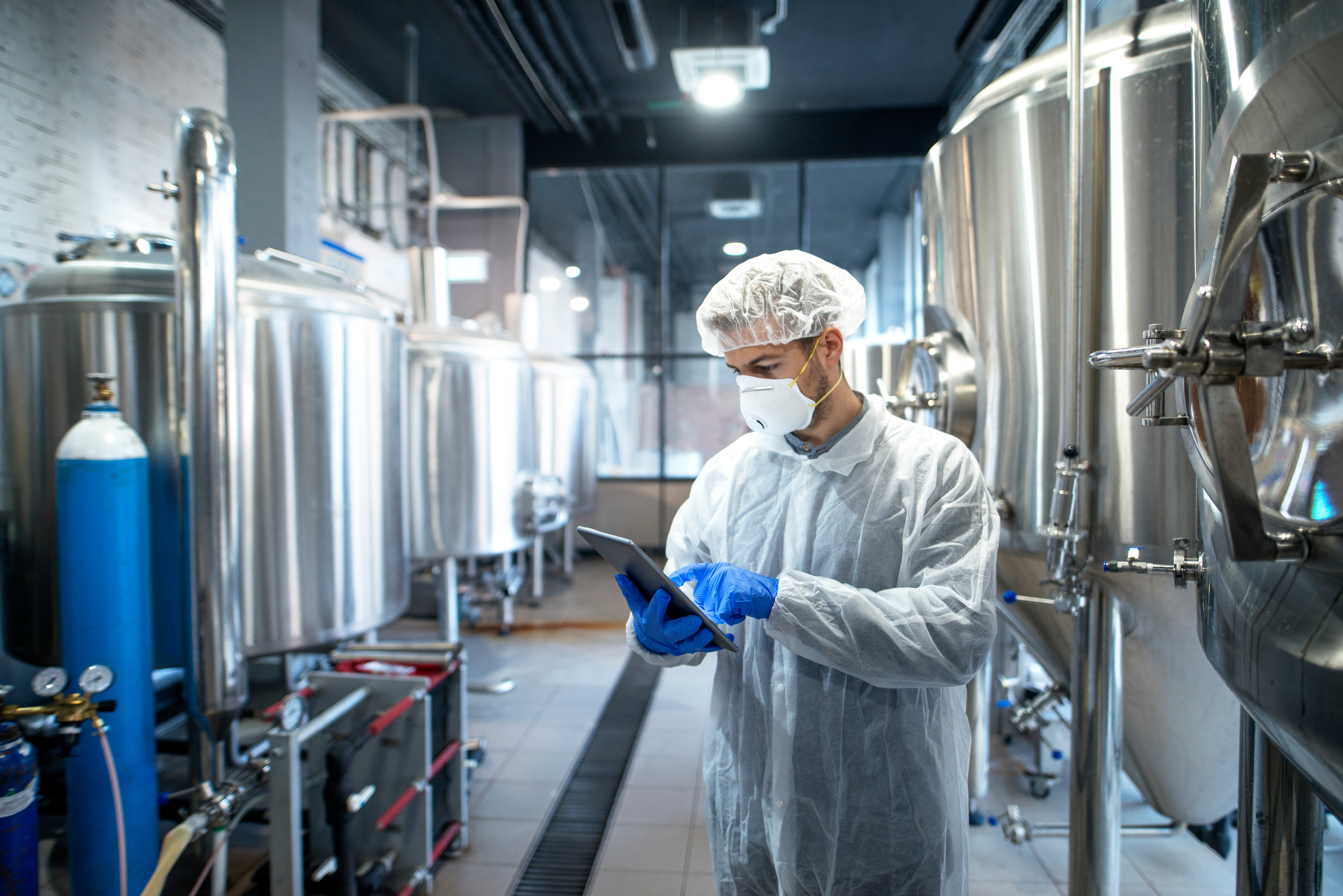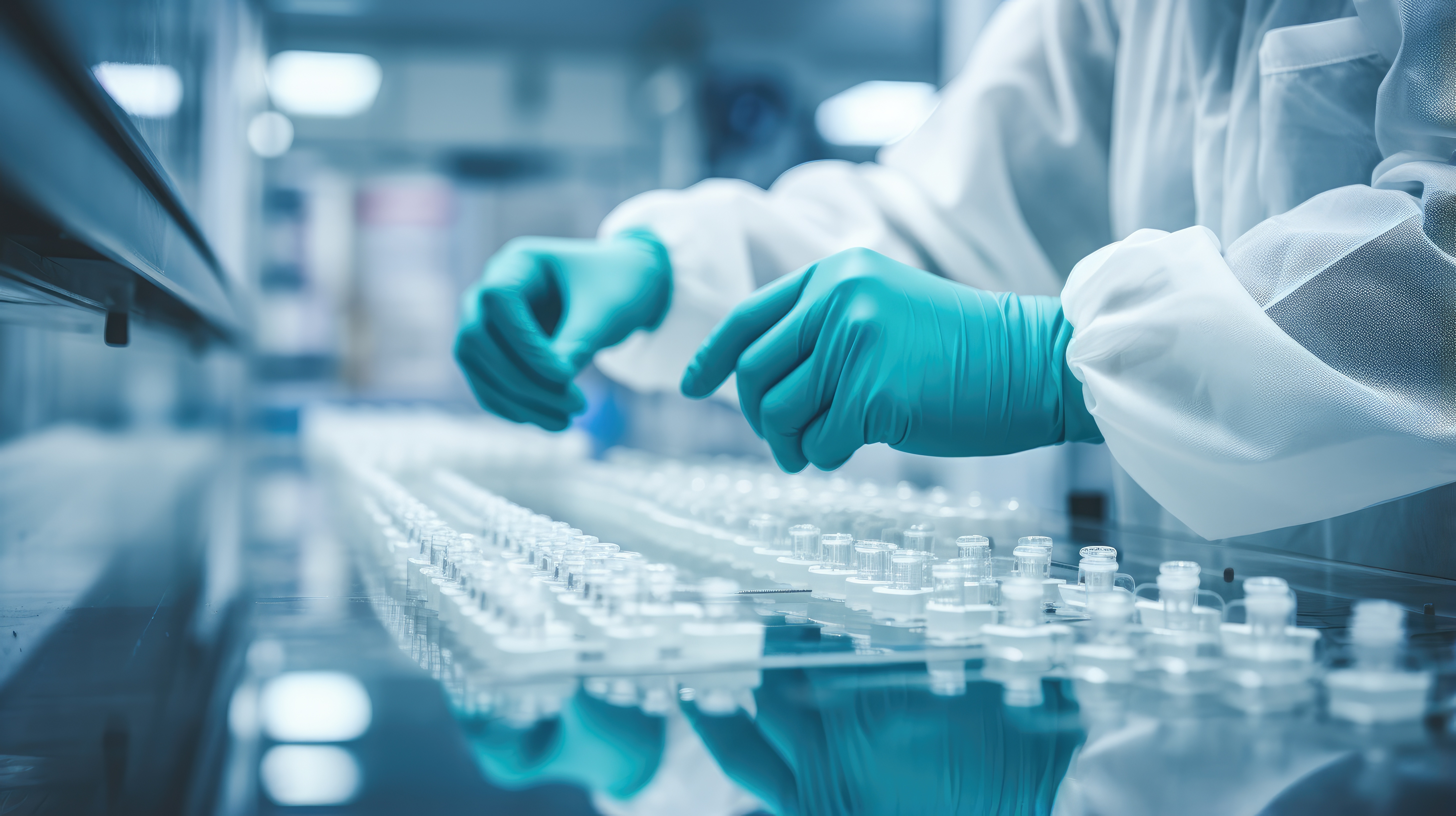A Good Manufacturing Practice (GMP) facility adheres to regulations and guidelines that require products to be consistently produced and controlled according to quality standards.
Importance of GMP Compliance in Manufacturing Facilities
GMP regulations aim to maintain product quality, safety, and efficacy. When a facility is GMP-compliant, its manufacturing processes are clearly defined, controlled, and validated to produce consistent, high-quality products. On the other hand, non-GMP compliant sites are more likely to have production issues, including product recalls, legal actions, and damage to a company’s reputation.
Several industries are required to comply with GMP standards, including:
- Pharmaceuticals: Ensuring the safety and efficacy of drugs.
- Medical Devices: Guaranteeing that devices are safe and function as intended.
- Food and Beverages: Preventing contamination and ensuring food safety.
- Cosmetics: Maintaining the safety and quality of cosmetic products.
Key Characteristics of a GMP Facility
GMP facilities must implement rigorous quality control (QC) and quality assurance (QA) practices to ensure that every element of the manufacturing process meets predefined quality standards. This includes routine testing, process validation, and product release protocols.
These facilities have processes designed to minimize the risk of environmental and personnel contamination. A GMP-compliant facility has proper ventilation, cleanroom environments, and segregated areas for different stages of production to prevent cross-contamination. But that’s just at the facility level. The equipment has its own stringent set of standards.
All equipment used in a GMP facility must be validated to ensure it operates correctly and consistently. And the processes that each runs must also be validated to confirm they produce the desired outcomes—and all of this needs to comply with quality standards. This validation ensures that products are manufactured to the same precise specifications every time.
Then, personnel in GMP facilities must be adequately trained and qualified to perform their roles. This means ongoing training programs are essential, as manufacturers need to update staff on GMP regulations, Standard Operating Procedures (SOPs), and best practices. This ensures that all employees are competent in maintaining GMP compliance.
And a GMP-compliant facility keeps updated records. GMP requires thorough documentation and record-keeping to ensure traceability and accountability throughout the manufacturing process. This includes maintaining detailed accounts of production processes, QC tests, equipment maintenance, and personnel training. Proper documentation is vital for audits and regulatory compliance.
GMP Facility Compliance Requirements
Following GMP guidelines and regulations seems straightforward, but there are many, and they depend on where the facility is located. GMP facilities must comply with specific guidelines and regulations, such as the FDA’s 21 CFR in the United States and the EU GMP standards in Europe. These regulations outline the minimum requirements for the methods, facilities, and controls used in manufacturing, processing, and packaging products.
Standard Operating Procedures (SOPs) ensure consistent and controlled processes. To maintain GMP compliance, manufacturers must have SOPs that are documented, regularly reviewed, and strictly followed by all personnel. This compliance is often monitored via audits.
Regular internal and external audits and inspections are key to ensuring ongoing compliance with GMP standards. Audits help identify areas for improvement and ensure that the facility meets regulatory requirements. A robust and organized internal audit protocol can save a manufacturer from risking a non-compliant finding.
Facilities must also have procedures for managing deviations from standard processes, handling complaints, and implementing corrective and preventive actions (CAPA). Effectively managing these aspects also helps maintain product quality and regulatory compliance.
Maintaining traceability and accountability is critical in GMP facilities. This includes tracking raw materials from receipt through production to the final product, ensuring that all processes are documented and that all products can be traced back to their origin if necessary.

How CERDAAC Supports GMP Facility Compliance
CERDAAC offers a wide range of solutions tailored to meet the specific needs of GMP-compliant facilities. Our services include comprehensive compliance management systems that integrate all aspects of GMP requirements, from documentation to quality control processes. Our systems help ensure facilities adhere to regulatory standards consistently, minimizing the risk of non-compliance and its associated penalties.
One key challenge in maintaining GMP compliance is managing the extensive documentation and record-keeping requirements. CERDAAC addresses this challenge by offering advanced digital solutions that streamline these processes. Our software solutions enable efficient document management, ensuring all records are easily accessible, up-to-date, and compliant with regulatory requirements such as 21 CFR part 11. This helps facilities maintain accurate and comprehensive documentation, which is critical for audits and inspections.
Our services include support for audits and inspections, which are essential components of GMP compliance. These features assist facilities in preparing for and conducting audits, ensuring all necessary documentation and processes are in place.
The Future of GMP Facility Compliance
The adoption of advanced technologies is increasingly shaping the future of GMP facility compliance. Innovations such as artificial intelligence (AI), machine learning, and the Internet of Things (IoT) are being integrated into GMP processes to enhance efficiency, accuracy, and traceability.
Another significant trend in the future of GMP compliance is the harmonization of global standards. As the pharmaceutical and medical device industries become more globalized, there is a growing need for standardized regulations recognized across different countries.
Efforts such as the International Council for Harmonisation (ICH) aim to create unified standards that facilitate smoother regulatory processes for companies operating in multiple markets. This harmonization helps ensure consistent quality and safety standards worldwide, making it easier for companies to maintain compliance across different regions.
Maintaining GMP compliance is crucial for manufacturing facilities across various industries, including pharmaceuticals, medical devices, and food production. It ensures that products are consistently produced to high quality and safety standards, protecting consumers and enhancing brand reputation. Compliance with GMP regulations also minimizes the risk of regulatory actions, recalls, and legal consequences while improving operational efficiency and cost savings.
Reach out for a demo to see how CERDAAC can support your facility’s GMP compliance efforts.


